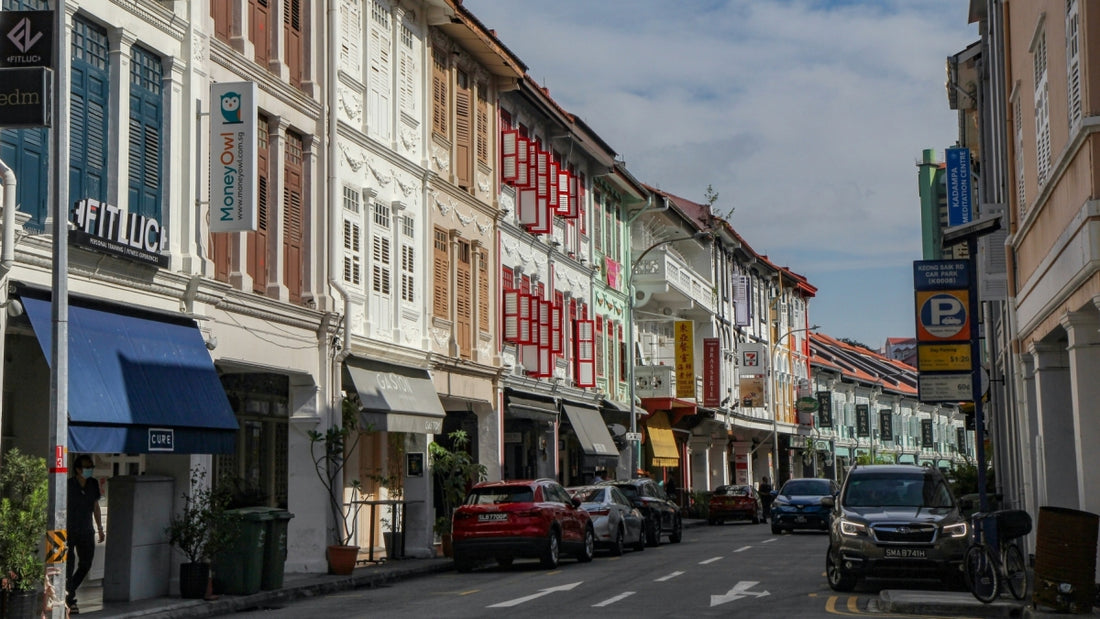The allure of Singapore’s shophouses is not just about historical charm, but also about their potential for financial returns and prestige. As one of the world’s most sought-after real estate markets, Singapore has seen an influx of ultra-wealthy investors eager to snap up these rare gems. The remaining 6,500 shophouses, built between the 1840s and 1960s, embody a significant piece of the city-state’s colonial history, which now commands a premium among the ultra-rich.
The appeal lies in more than just historical nostalgia—it's about the scarcity of supply and the preservation of value over time. Investors are increasingly drawn to these heritage assets, which are conserved by the Urban Redevelopment Authority (URA), making them exclusive and valuable. With high demand and a fixed supply, owning a shophouse in Singapore is akin to holding a prized asset that not only appreciates in value but also offers long-term capital preservation.
Although the first half of 2024 saw a decline in shophouse transactions, the market remains resilient, especially in prime locations such as Tanjong Pagar, Chinatown, and Duxton. Many prominent figures and business tycoons, including the wife of Chinese billionaire Jack Ma, have acquired shophouses, further driving demand from international investors who view these acquisitions as both a symbol of prestige and a smart investment.
The intrinsic value of shophouses extends beyond their scarcity and prime locations. Many businesses—law firms, tech companies, and even financial institutions—have started using them as offices due to the flexibility of operating hours and the unique blend of history and modernity that these spaces offer. Shophouses are also exempt from Additional Buyer’s Stamp Duty (ABSD), making them especially attractive to foreign investors, who find Singapore’s stable economy, strong currency, and favorable loan terms a significant advantage.
However, there are challenges in this market. With rising interest rates, some wealthy investors are choosing to make cash payments, which can impact the cash flow potential of shophouses in the short term. But for many of these buyers, the long-term capital appreciation far outweighs any immediate cash flow concerns.
Moreover, recent events, such as the 2023 money laundering case involving $3 billion worth of assets, have temporarily slowed shophouse transactions. Some investors have become more cautious, waiting for the outcome of the investigation, while others remain unfazed, understanding that such occurrences are anomalies rather than the norm.
As the demand for shophouses grows, investors are increasingly exploring opportunities in areas outside the traditional prime districts. Places like Bugis, Balestier, and Geylang are drawing interest as savvy investors seek properties with strong growth potential at lower price points. These neighborhoods, once overlooked, are becoming attractive as the demand for commercial space and alternative locations increases.
Summary of Key Highlights:
- High Demand, Low Supply: Only 6,500 shophouses remain, driving high demand and pushing up prices.
- Historical Significance: Shophouses, built between 1840 and 1960, embody Singapore's colonial history, increasing their prestige and value.
- Prime Locations: Investors are particularly drawn to Districts 1, 2, and 3, where shophouses hold their value and offer significant capital preservation.
- No ABSD for Foreign Buyers: Shophouses are exempt from Additional Buyer's Stamp Duty, making them attractive to foreign investors.
- Business Appeal: Law firms, tech companies, and other businesses are increasingly using shophouses as office spaces due to flexible operational hours and a unique ambiance.
- Capital Preservation Over Cash Flow: While immediate returns may not be high, shophouses are seen as a strong long-term investment for preserving wealth.
This surge in demand for Singapore’s colonial-era shophouses reflects the city-state’s continued appeal as a global investment destination. The ultra-wealthy are not just purchasing these properties for their historical value, but also as a means of diversifying their assets in a stable, appreciating market. Despite challenges such as rising interest rates and regulatory scrutiny, shophouses in Singapore remain an attractive investment for those looking to preserve capital while holding a prestigious piece of the country’s rich history.
As a real estate agent, it's crucial to stay ahead of these trends. Understanding the shophouse market, its potential for capital appreciation, and the benefits it offers to both local and international investors can help you cater to this niche but growing market.
If you're interested in learning more about Singapore's exclusive shophouse market or looking for opportunities to invest in these prestigious properties, feel free to reach out. I can provide you with the latest updates, insights, and guidance on how to navigate this lucrative market.

